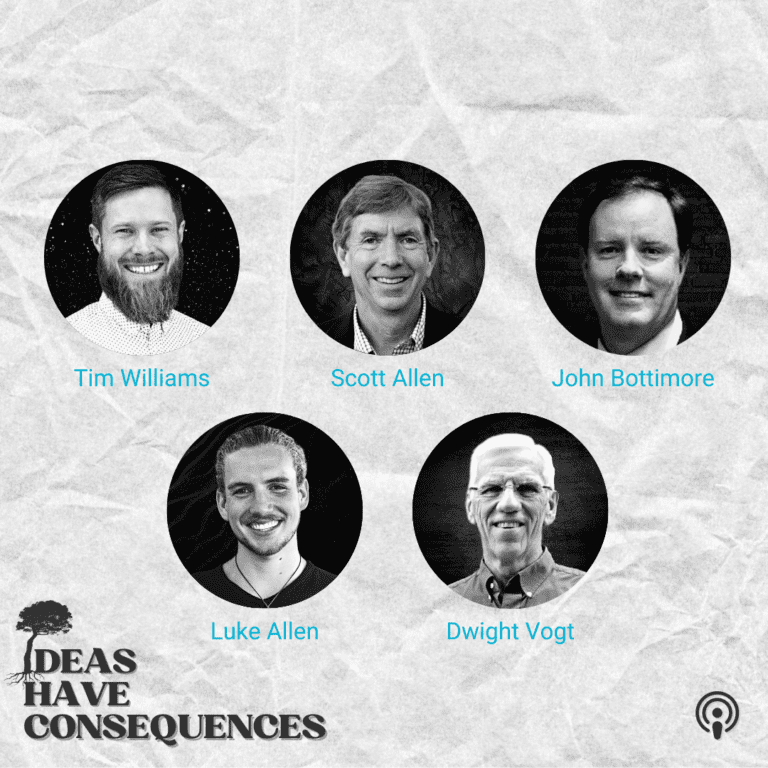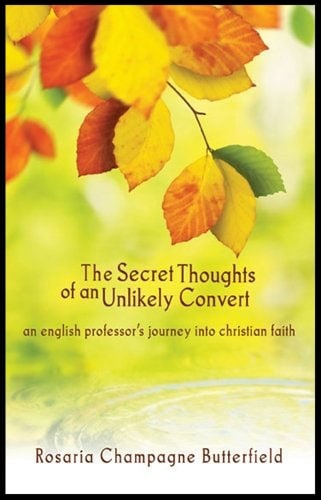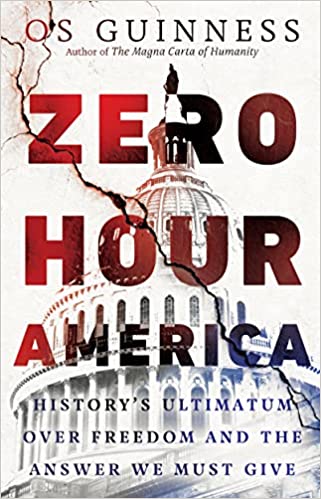At a Glance
We live in a time of deep cultural division. It is political: progressive vs. conservative. It is economic: socialism vs. capitalism. It runs through fundamental issues like abortion: pro-choice vs. pro-life. It runs through demographically, class and education: Urban, highly educated elites vs. rural, blue-collar “deplorables.”
Ultimately, it is rooted in deep worldview beliefs: Objective truth vs. man-created “truth,” spin, and narrative creation. Creation vs. naturalistic evolution. Judeo-Christian theism vs. “woke” cultural Marxism. This divide is challenging and uncomfortable for many Christians, who want to be viewed as peacemakers, and not angry culture warriors. Increasingly, they speak in terms of “not this, or that” but “a third way.”
Today, we explore the growing trend of “third-wayism.” Is it helpful, or does it lead us astray?
What You'll Hear
Chapter 1: The Divide (1:32)
- America in recent decades has become very divided politically, morally, and economically, and this divide even reaches into the Church.
- Some people have started advocating for “a third way”, where we take a middle-of-the-road approach that emphasizes not taking positions and not arguing with anyone.
- One of the main appeals of the third way is that we can avoid conflict and not offend people, finding areas of agreement with both sides.
- While this might be appealing, we are called as Christians to confront the world with love and to stand for truth, regardless of if it offends or not.
Chapter 2: Problems with the “Third Way” (14:09)
- The third way ends up arguing that both sides of the issue are equally valid, even if there is an actual right answer.
- It is often (but not always) rooted in a fear of man, where we acquiesce what we believe so that we don’t offend other people.
- We have to be committed first to biblical truth, instead of whether we think what we believe will offend someone.
- When we embrace the Third Way, we equate both sides as being fundamentally equal, when one side is often more wrong than the other.
- Even when we have to choose between the lesser of two evils, that is better than being uninvolved entirely, especially when it comes to whether or not biblical truths are represented at all.
Chapter 3: Fear of Man (26:26)
- Much of third way ideology is based on a fear of man.
- We want to be affirmed and liked and accepted, and it is immensely appealing to us to let go of anything that makes us unpopular or disliked so that we can be accepted again.
- This is especially the case in today’s political climate, where you are called a bigot or hateful for disagreeing, which pushes us to disavow truth in order to be accepted.
Chapter 4: Three Levels of Worldview (35:44)
- There are three different levels of worldview.
- The first is the personal or pastoral: What do I think is right and wrong?
- The next is philosophical: What do I think about ideas and methods?
- The third is “political”: How should these beliefs shape the way institutions and culture works? Political doesn’t necessarily mean partisan or even governmental, but anything that has to do with working through institutions.
- Truth and love are two sides of the same coin, and we need to have both in all three levels of the worldview.
- We can’t disconnect truth and love from our political beliefs.
Using the link above, you can read the transcript, listen along, and adjust the speed of the podcast while you listen.
God's framework for living life is always the healthiest, always the best, always the most loving way that we can walk through life. And if we stand upon that, sure, you're going to offend some people, as we clearly see in Jesus's life. But you're also going to live the life that God created for you to live.
-Luke Allen (18:12)

Go Deeper
The Three Worlds of Evangelicalism
American evangelicalism is deeply divided. Some evangelicals have embraced the secular turn toward social justice activism, particularly around race and immigration, accusing others of failing to reckon with the church’s racist past. Others charge evangelical elites with going “woke” and having failed their flocks. Some elites are denounced for abandoning historic Christian teachings on sexuality. Others face claims of hypocrisy for supporting the serial adulterer Donald Trump.
Where once there was a culture war between Christianity and secular society, today there is a culture war within evangelicalism itself. Now, the Evangelical world is split into three pieces, each of which approach the culture and world differently.

The Secret Thoughts of an Unlikely Convert
Rosaria, by the standards of many, was living a very good life. She had a tenured position at a large university in a field for which she cared deeply. She owned two homes with her partner, in which they provided hospitality to students and activists that were looking to make a difference in the world. There, her partner rehabilitated abandoned and abused dogs. In the community, Rosaria was involved in volunteer work. At the university, she was a respected advisor of students and her department’s curriculum.
And then, in her late 30s, Rosaria encountered something that turned her world upside down—the idea that Christianity, a religion that she had regarded as problematic and sometimes downright damaging, might be right about who God was, an idea that flew in the face of the people and causes that she most loved. What follows is a story of what she describes as a “train wreck” at the hand of the supernatural. These are her secret thoughts about those events, written as only a reflective English professor could.

Hotel California
Bill Wells, the mayor of El Cajon, California, faces a huge problem: Homelessness. Bill thinks that the problem can be solved with the right approach, but as his worked progressed and began to make a difference, he started to run into more and more opposition.
California’s Attorney Office issued a cease and desist when Bill Wells started to push back against his opponents. His success in making positive changes in homelessness only spurred on opposition, and thousands of homeless people were dropped off by the government in his city to try to drown his success in more homeless people. At one point, even though his city was merely 3% of California’s population, it was supporting 45% of all homeless hotel vouchers.
Hotel California is an article written by Bill Wells detailing his struggles and philosophy in dealing with the homeless.

Zero Hour America Parts 1 and 2
For the last two episodes of Ideas Have Consequences, we talked with Dr. Os Guinness, a deeply respected and prophetic author, teacher, and cultural critic. We were honored to have him join us as a guest for a special 2 part podcast series. In this two-part interview, we glean Dr. Guinness’s wisdom on a variety of pressing cultural issues, ranging from “Christian nationalism” to “globalism” to transhumanism and the sexual revolution.
In part two, we also get his take on the recently released “Twitter files,” revealing widespread government and social media efforts to censor free speech. How should the church faithfully respond to these urgent issues? Os offers his wisdom on this as well.
Click here to listen to Part 1 and Part 2 of Zero Hour America
Faithfulness in a Post-Christian World
The world we live in is becoming increasingly hostile to Christianity. Some Christians resolve this tension by trying to be “nice” to the world. They want the gospel to look attractive, and to keep relationships with nonbelievers peaceful so that they can share Jesus’ love. While these are important ideals; in practice, prioritizing our “winsome” reputation often leads to compromising the gospel. Join us this week as we discuss how to respond with truth, boldness, and love to a culture where the public opinion toward Christianity is negative.
Quotes
We should always be humble. And we should always be ready to take suggestions and criticism about how better to communicate things and how better to get points across and everything. If that’s the intent of all of this, then wonderful, we should always be able to improve and grow in our faith and sharpen our ability to defend the faith that that we know is true. If its causes are intended to cause more confusion or distance from biblical truth, we don’t support that. -John Bottimore (15:00)
God’s framework for living life is always the healthiest, always the best, always the most loving way that we can walk through life. And if we stand upon that, sure, you’re going to offend some people, as we clearly see in Jesus’s life. But you’re also going to live the life that God created for you to live. -Luke Allen (18:12)
I first heard this in the political context when someone said, “We should be involved in politics as Christians, but we cannot be partisans.” And I thought that was just wrongheaded, because I said, it all depends on the political party and what they stand for and how much or little they align with biblical truth. -Scott Allen (20:19)
We who are believers are both motivated for a worldview for truth, and for honoring our Lord who has saved us, but we’re also motivated out of love. And anything that we can do to communicate better out of love, humbly reach out better, then wonderful! But never compromise truth. Never compromise the love that Christ has for us and for who we communicate to, but we can always improve how we communicate and how we demonstrate Christ’s love. -John Bottimore (56:01)



